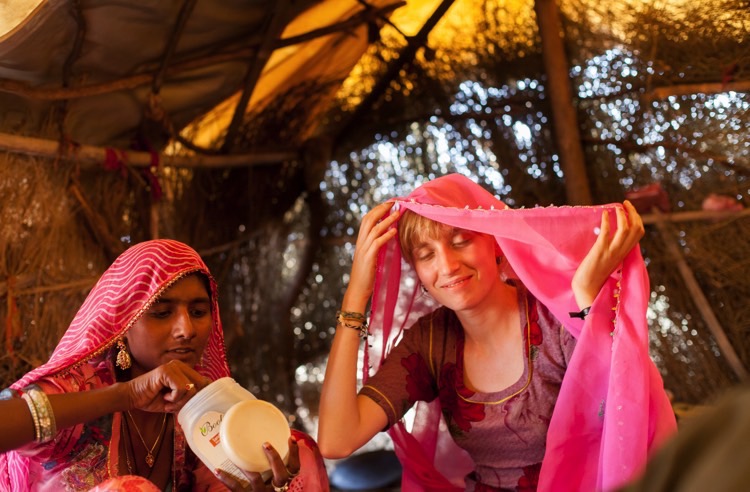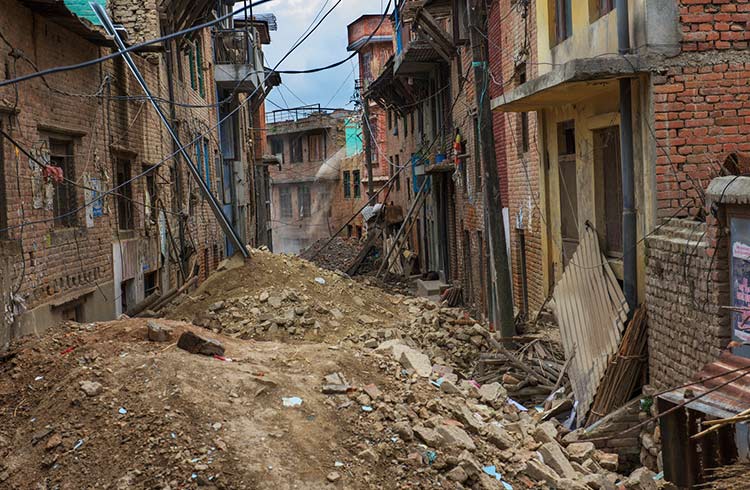Inspiration is everywhere, but sometimes it can take a little work to find. Try these methods from travel writer Annapurna Mellor to open your mind and take your readers on a journey.
 Photo © Simon Migaj
Photo © Simon Migaj
Travel writing comes in many forms – from guides and blogs to personal stories and informative articles. Whatever you're writing, your aim as a travel writer is to draw a reader in and inspire them to visit a place.
The most powerful way to do this is through stories, which you can weave through any type of travel writing. Stories help to engage the reader with the destination, and also with you as a writer.
While working as a travel writer, I have found that one of the most valuable skills is learning how to find and tell an engaging story.
If you're looking to take your travel writing to the next level, here are some tips I’ve used in the field to help me find these stories and bring my travels to life.
Do your research
Before you even head out on a trip, it’s important to get to know the destination.
I find it very useful to read guidebooks, online blogs and articles written by other travel writers. This helps to get to know the destination before I even arrive.
It can help me to identify possible story angles – as well as seeing what has already been done multiple times by other writers and blogs.
On a recent trip to Meghalaya state in India, I read that the local Khasi culture is matrilineal – something which I thought would be a unique angle to a piece of travel writing. My research led me to a weekly tribal market and a remote homestay run by seven Khasi women.
Despite only having a few days in the state, my research enabled me to quickly find the story of this unique place.
Go with an open mind
While research is incredibly important, it’s also important not to get too absorbed with other people’s writing. Instead, leave some space to craft your own thoughts and opinions on a place.
Morocco is a place that has been visited time and time again. Before you arrive, you are going to have words like ‘exotic, colorful, vibrant medinas, stepping back in time’ spinning around your head. So much so that when you actually arrive in the country, you will expect to find these things and it will be hard to look outside this box to what else is happening in Morocco – a place that is much more than those words.
On a recent assignment to the country, I choose to step off the beaten track and spend a few days in Casablanca – a city which in comparison to Marrakesh or Fez is sparsely written about.
I found a city that was moving into the future – full of exciting youth culture, Parisian-style cafes, and an economic hub that was still proud of its cultural heritage.
I crafted a story different from the ones I previously read, and it was approaching the city with an open mind which lead me to this story.
Talk to local people and tell their stories
While I love monuments, natural beauty and the delicious cuisines of the world – it’s always the people who make a place.
People are often the best starting point for a story, as readers engage much more with a human story.
I’ve previously written about a great travel writing exercise which is recording short snippets of interviews with people on your phone while traveling. You can use these snippets of local insight as a starting point for a story.
On a recent trip to Chile, I traveled to Pucon, an area known for its Villarrica volcano. While I could have started a story on the region with ‘Looming over the little town of Pucon, the Villarrica volcano is one of the world’s most active’, I instead went for ‘As my guide Ricardo stepped deep into the soft snow, he looked up at the towering Villarrica above us, ‘I remember the day it erupted like it was yesterday’.
While the first opening gives the reader a sense of the place, the second one draws you in much more: you get a sense of local life in this area, and you are intrigued to discover more about the region and that day when the volcano erupted over the town.
Putting your story together
On your next trip, spend some time researching, heading off the beaten track, and talking to local people to find your own story.
Look for stories that have never been told before and ones that will inspire and educate your readers.
Try these tips in your next piece and you'll find that they're a great way to improve your storytelling and help you create engaging and undiscovered stories across the world.
Related articles
Simple and flexible travel insurance
You can buy at home or while traveling, and claim online from anywhere in the world. With 150+ adventure activities covered and 24/7 emergency assistance.
Get a quote

No Comments